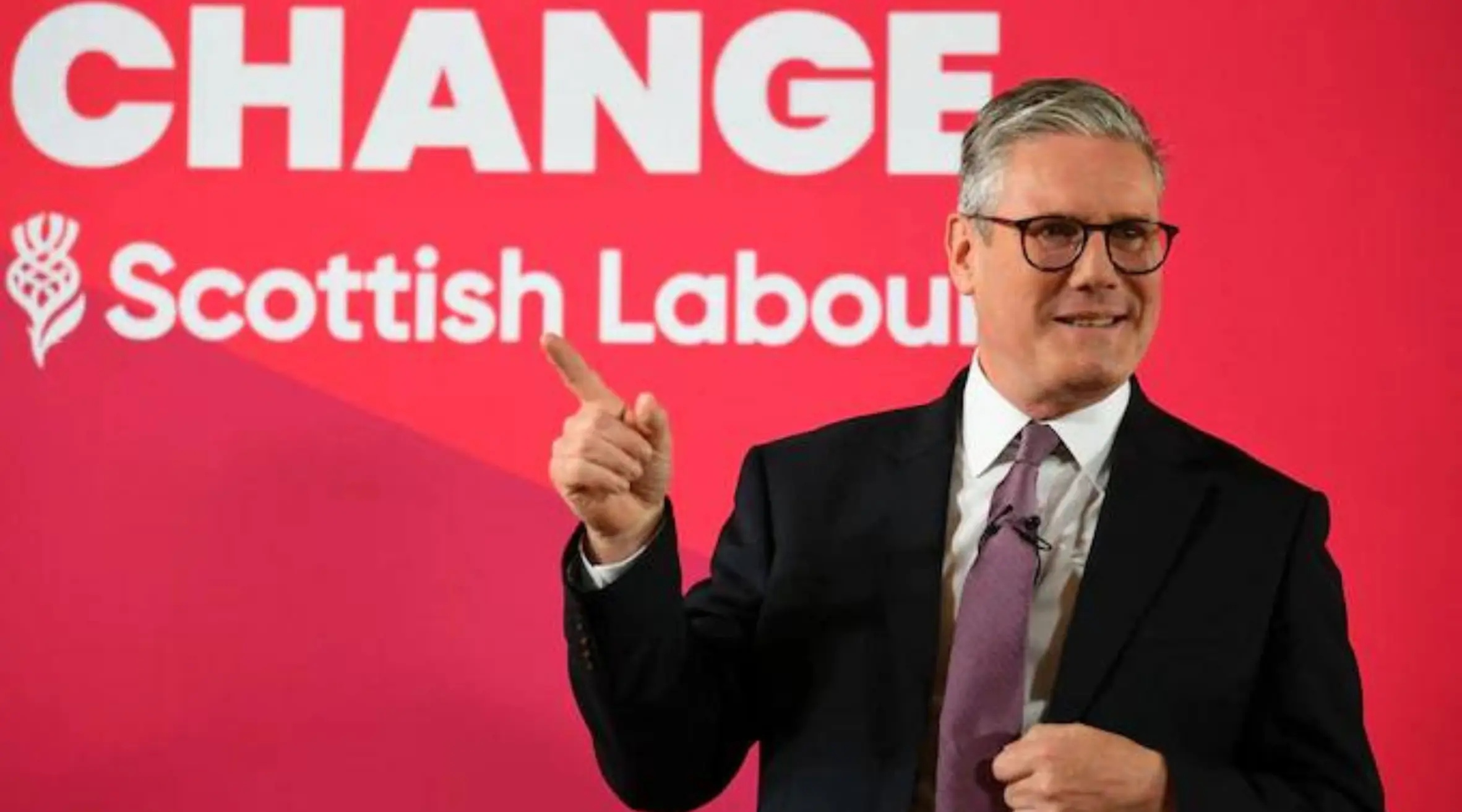London (Parliament News) – Keir Starmer commits to centrist leadership, prioritizing wealth creation. He emphasizes economic growth, tolerance, and inclusivity while navigating party controversies. Labour’s Back to Work plan aims to boost employment and training opportunities.
Keir Starmer has declared he will lead from the centre ground if elected PM and declared wealth creation to be his “number one mission”. In a discussion with the Times, Starmer expressed the centre ground was “where most people are at”.
Why does Starmer reject political extremes?
“As a nation, broadly speaking we’re a pretty reasonable, tolerant bunch but we are in the centre ground of politics. People don’t like the extremes of the right or the left. They are reasonably tolerant. They want themselves, their families and the country to improve and make progress,” he stated.
How does Starmer view aspiration and economic progress?
Starmer expressed that the ‘“only way our country can go forward” was if people and businesses make money. “I think it’s a good thing that people are aspirational. When I say our number one mission is economic growth, you could say our number one mission is wealth creation. Now that’s an odd thing for the Labour Party to say. It might have been in the past.”
Asked whether he was comfortable about people making money, he stated: “Very. I’m not just relaxed, I’m relaxed as well as being doggedly determined.”
What changes are happening within Labour’s left wing?
His centrist pitch comes as the party shows what some see as a purge of Labour’s left wing. Earlier this week, the sitting MP Lloyd Russell-Moyle and Faiza Shaheen, who had been appointed by her local party to run as the Labour candidate for Chingford and Woodford Green, were deselected by the party’s national executive committee, where Starmer partners have majority control, and replaced by figures on the right of the party.
On Tuesday, the Times said that Diane Abbott would be banned from standing as the Labour candidate for her Hackney North and Stoke Newington seat. The news provoked a backlash from many quarters of the party and Abbott vowed to be the MP “as long as it is possible”.
After Angela Rayner tossed her support behind Abbott, Starmer expressed on Friday that she was “free to stand” as the Labour candidate in her seat.
What is Starmer’s vision for a non-tribal Labour Party?
Starmer described to the Times that the party was not “tribal” under his leadership. He stated: “I want it to be wide enough to accommodate people who wouldn’t identify as Labour. They’d vote Labour this time.
“Those people are believable, tolerant and they do want their families to get on, their communities to get on, their countries to get on. This may reflect the fact that I came into politics late. I’ve never been in a tribe. It has not dominated my life for decades of my career.”
The interview comes before the statement of Labour’s Back to Work plan, which seeks to get 2 million more people into work. The initiative would include a coordinated national jobs and careers service, devolved budget and leadership from mayors to “get more people with health disorders and disabilities into work” and opportunities for 18- to 21-year-olds to access training and apprenticeships.
In a statement, Starmer stated: “With Labour, those who can work, will work. We want more people to work, to get on at work and to get the benefits bill down. Under the Tories, some too many people are not in work, who should be. “Too many people are adhered to jobs with no promise of earning a better revenue. Young people who are yet to participate in work, are at risk of falling off the radar. We can’t go on like this. It’s time for change.”


